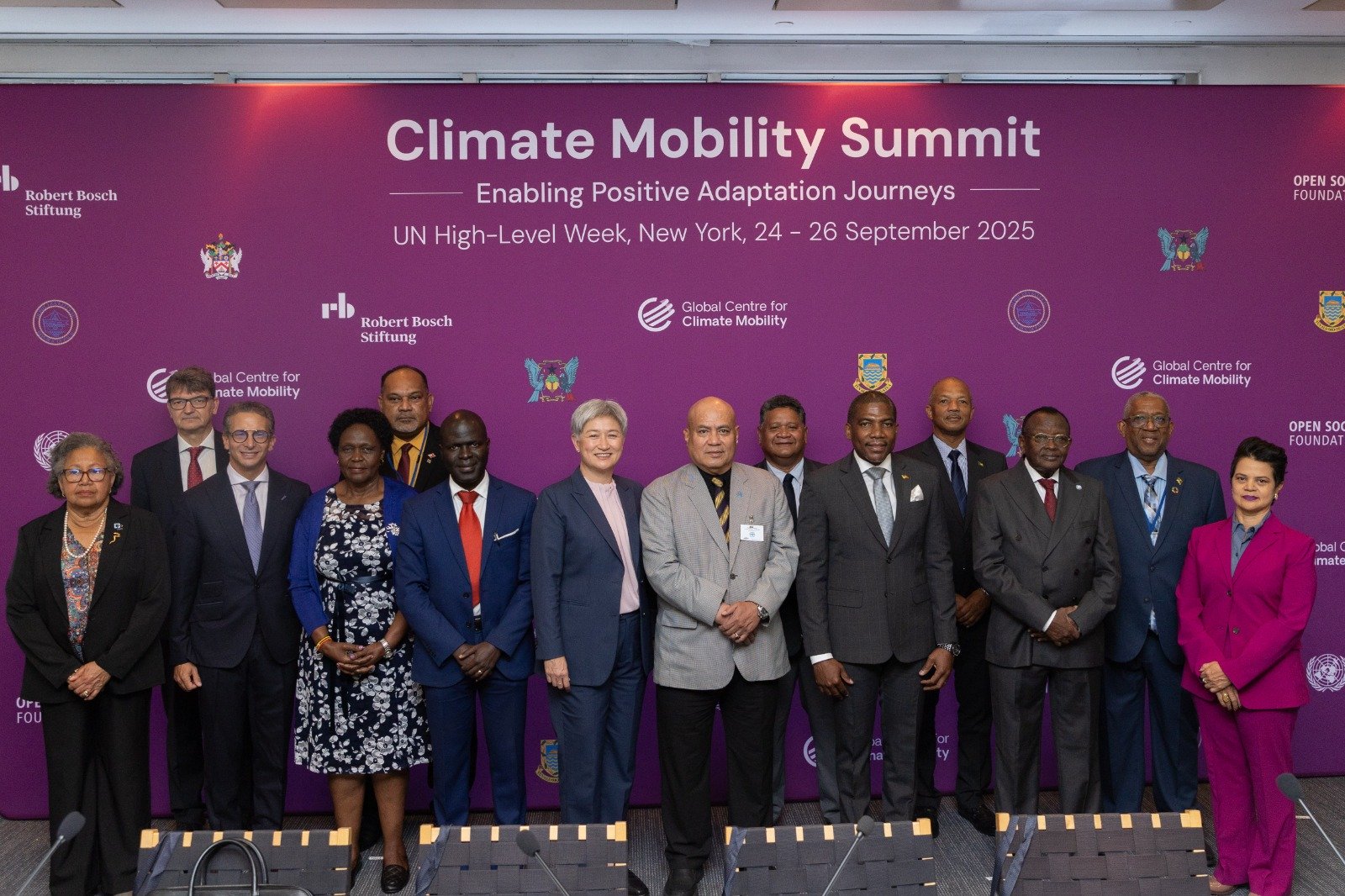St. Kitts and Nevis Spearheads International Appeal for Humane Climate Migration Policies
The Prime Minister of St. Kitts and Nevis, Hon. Dr. Terrance Drew, delivered a compelling address at the High-Level Breakfast of Climate Mobility Champions during the United Nations General Assembly High-Level Week in New York on September 24, 2025. He emphasized the urgent need for a just and coordinated global response to climate-induced displacement, highlighting the disproportionate impact of climate change on small island developing states (SIDS) like St. Kitts and Nevis. Dr. Drew stressed that this issue is not a distant threat but a present reality for these vulnerable nations, demanding immediate action rather than mere contemplation. He underscored the inherent injustice of SIDS bearing the brunt of climate change consequences despite their minimal contribution to global emissions. These nations face rising sea levels, altered rainfall patterns, and intensified storms, all of which threaten their very existence.
Dr. Drew advocated for a shift in perspective, urging the global community to view climate mobility not solely as a crisis requiring emergency responses, but as an integral component of long-term development planning. He called for a comprehensive approach encompassing preemptive measures, protective strategies, and the creation of opportunities for affected communities. He highlighted the need for investment in building resilience, not just responding to immediate disasters. This proactive approach, he argued, should focus on equipping communities with the skills, education, and infrastructure necessary to thrive in the face of climate change impacts, regardless of their location. This forward-looking perspective is crucial for ensuring the long-term survival and prosperity of vulnerable island nations.
Reflecting on the historical context of regional responses, Dr. Drew acknowledged the Caribbean’s longstanding tradition of offering refuge to neighboring countries during times of crisis. He commended the region’s solidarity and willingness to provide assistance, even with limited resources. However, he cautioned that ad-hoc responses are no longer sufficient to address the escalating challenges posed by climate change. The increasing frequency and intensity of climate-related events necessitate a more structured and sustainable approach. He advocated for moving beyond reactive measures toward proactive strategies that anticipate and mitigate the impacts of climate change.
To address this escalating crisis, Dr. Drew called for the establishment of a regional rights-based framework to guide responses to climate displacement. This framework, he argued, should be grounded in the principles of justice and equity, ensuring that the rights of those displaced by climate change are protected and upheld. He emphasized the importance of international cooperation and urged global partners to invest not only in climate adaptation measures but also in crucial human capital. This includes investments in education, skills development, and infrastructure that will empower affected communities to build resilient livelihoods and thrive in new environments, if relocation becomes necessary. Such investments are essential for fostering sustainable development and ensuring that climate-displaced communities are not left behind.
Furthermore, Dr. Drew stressed the importance of incorporating climate mobility considerations into broader development agendas. He argued that climate mobility should not be treated as a separate issue but should be integrated into national and regional development plans. This integrated approach would ensure that climate change impacts are considered across all sectors, promoting a more holistic and effective response. He also underscored the need for anticipatory planning, emphasizing that proactive measures are more effective and cost-efficient than reactive responses to climate-induced displacement.
In his closing remarks, Prime Minister Drew championed collaborative partnerships that prioritize local voices and expertise. He stressed the importance of empowering communities most affected by climate change to actively participate in shaping solutions. He also expressed strong support for global frameworks like the upcoming UN Sea-Level Rise Summit in 2026, recognizing the crucial role of international cooperation in addressing this global challenge. He called for a concerted global effort to address the root causes of climate change and mitigate its impacts on vulnerable communities. He emphasized that the fight against climate change requires a united front, with all nations working together to protect the planet and ensure a sustainable future for all. This call for global collaboration underscores the interconnectedness of nations in addressing climate change and its consequences.
Share this content:












Post Comment